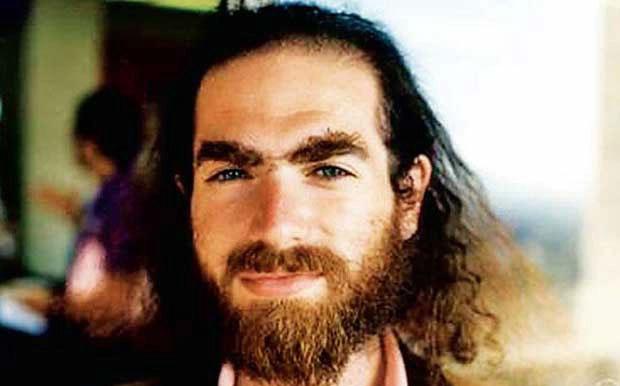Portrait of Russian mathematical genius Gtigori Perelman: Dubbed the smartest person in the world
Surpassed since he was just a boy
Born on June 13, 1966 in Leningrad (present-day Saint Petersburg) into a family of Jewish origin, with the full birth name Grigori Yakovlevich Perelman. The father emigrated to Israel a long time ago, and the mother Liuba Leibovna is a math teacher at a vocational school, who also instilled a love of mathematics for her only son from an early age.

Grigori Yakovlevich Perelman was born into a family of Jewish origin.
At the age of 5, Grigori began to regularly participate in seminars at the Math Center at the Leningrad Children's Palace, led by the leading expert of the natural sciences, Professor Sergei Rukshin. Foundation.
In the 9th grade, Grigori transferred to No. 239 High School specializing in mathematics on the outskirts of the city, although far from where he lived, but met his passion for learning math. At the age of 16, G. Perelman was one of six members of the Soviet Team to participate in the 23rd International Mathematical Olympiad (IMO) held in Budapest (Hungary), and won the Gold Medal with excellent scores. for 40/40.
After returning home, G. Perelman was given special permission to study at Leningrad State University (LGU). With excellent academic performance, the new bachelor G. Perelman received a full scholarship named Lenin to move up to the post of PhD student. Grigori graduated with a Ph.D. from LGU's Department of Mechanical Mathematics, specializing in the study of the shape of objects in space. He then worked at the Leningrad Branch of the Steklov Institute of Higher Mathematics (LOMI, now PDMI).
An illustrious career, but always wants to. stay hidden
Throughout his career, the Russian mathematical genius received many invitations to lecture and teach at many top American universities. He agreed, but refused to stay for a long time because his life was devoted to research. G. Perelman returned to his hometown and continued to work at LOMI with a burning passion for research. During his work here, the young scientist's first controversial action was that he refused to defend his doctoral thesis proposed by his colleagues.

His reason for living is to devote himself to research.
In 1996, G. Perelman was awarded the European Mathematical Union's (EMS) Young Mathematician Prize, but he declined it Not long after, the International Mathematical Union (IMU) based in Berlin (Germany) decided to award the Fields Medal- the noble prize known as the 'Nobel Prize in Mathematics' to G. Perelman but he refused to go to Spain to receive the prize.
At the beginning of 2010, the Clay Mathematics Institute (CMI) - a non-profit organization based in the city of Cambridge (Massachusetts, USA) - agreed to award the Millennium Prize with a reward of $ 1 million to the developer. Russian mathematician G. Perelman for proving the Poincar Conjecture. But like the previous international award, this time he continued to decline.

Grigori Perelman doesn't care about money or fame.
The only time Grigori accepted the prize was in 1991. That year he was awarded the Leningrad Young Mathematical Society's prize for his contributions to the field of professional research.
Explaining the reason for being indifferent to the award/bonus series, Grigori said: 'I already have everything I want, so I don't care about money or fame!'.
- Why does the Russian genius of mathematics refuse $ 1 million?
- The math genius rejected the prestigious awards
- The world 'living computer' dies
- Vietnamese scientists talk about Perelman phenomenon
- Becoming a mathematical genius is due to birth
- Perelman - mathematician
- When is the smartest person?
- How is genius different from ordinary people?
- Become a mathematical genius thanks to brain damage
- The results of the study of 5,000 genius children within 45 years have been announced
- Mystery numbers can 'open up the universe' of the scientist 'crazy' genius
- 3-year-old girl has IQ equal to Albert Einstein
 The Indian prophet prodigy warned 3 events and what will happen on April 13, 2022
The Indian prophet prodigy warned 3 events and what will happen on April 13, 2022 Top 8 youngest professors in the world: Teaching university at the age of 18
Top 8 youngest professors in the world: Teaching university at the age of 18 Elena Cornaro Piscopia - The world's first female doctor of philosophy
Elena Cornaro Piscopia - The world's first female doctor of philosophy The ancient Greek philosopher was executed for understanding the Moon
The ancient Greek philosopher was executed for understanding the Moon